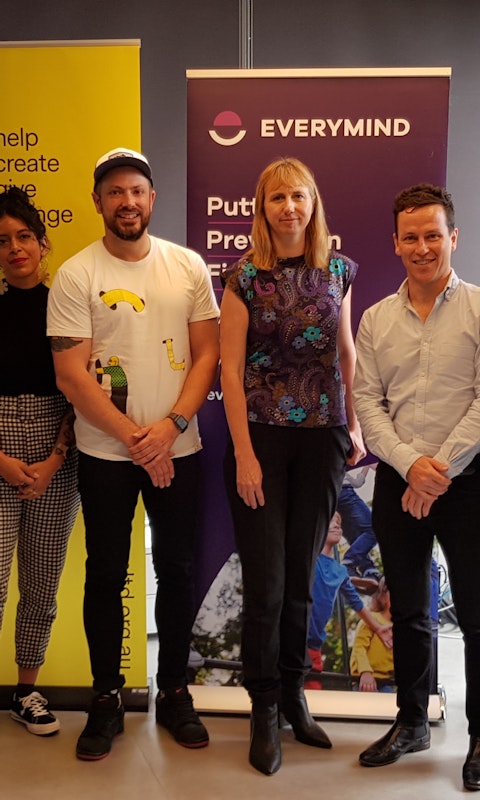
 Support us
Support us

Results of the first major Australian study into the mental health and wellbeing of the media, marketing and creative industries have been released. The Mentally Healthy research, conducted by Everymind in partnership with Never Not Creative and UnLtd, aims to bring transparency to the mental health issues affecting individuals in these industries and to better understand their attitudes towards mental health.
More than 1,800 employees across the media, marketing and creative industries took part in the survey. Participants provided their thoughts on mental health within the workplace, accessibility of health programs, and the types of programs they perceive as most suitable for their workplace.
Everymind Director, Jaelea Skehan said the research was important to better understand the needs of those working within the media, marketing and creative industries, to help inform development of tailored programs that meet industry specific needs.
“To best target and tailor workplace mental health approaches for the greatest impact, it is critical to understand the specific stressors, risk factors and opportunities for intervention that are appropriate for the industries. People often want to do something about mental health at work, but it is critical they focus on doing the most effective things for their specific industry,” Ms Skehan said.
Mentally Healthy used the Depression, Anxiety and Stress Scale (DASS) to identify symptoms of depression and anxiety in research participants. Key findings show that people in the media, marketing and creative industries are considerably more likely to show mild to severe symptoms of depression and anxiety compared to the national data (based on a report from the Australian Psychological Society in 2015), with 20% more participants showing symptoms of depression, and 29% more showing symptoms of anxiety.
Looking at factors associated, the study identified a number of key contributors to mental health and mental ill-health including job satisfaction, stress and pressure (from themselves and others), overworking and the limited amount of social connections. Those with higher levels of job satisfaction, and a wider social network with better work-life balance, resulted in lower depression and anxiety scores.
Survey participants were not only literate about mental health issues, but also welcoming and supportive of those who experience mental ill-health, with 89% willing to work closely with someone with depression. However the study found respondents were less likely to feel comfortable talking about their own issues in the workplace, with only 29% signalling they would tell someone if they had been diagnosed with depression.
“Evidence suggests that well-coordinated programs, including those in workplace settings, can improve mental health, reduce the rate of suicide, and have other benefits like reducing absenteeism, improving productivity, and retaining staff,” Ms Skehan said.
“But to design those programs you first need to understand your people and the specific stressors to be addressed. I applaud the industries for identifying the need for the research, which our team at Everymind was pleased to support.”
Andy Wright, Founder of Never Not Creative, said this industry-first study shines a spotlight on a well-known, but often ignored problem, within our community in an effort to promote change amongst employers and employees.
“Now that we know the issues, we will be identifying the right solutions to help make our industries more mentally healthy. We’d like to launch a resource hub for various tips and tools around mental health specifically for people working in our media, marketing and creatives industries, and we will be working with our community to address some of the causes identified in the study,” Mr Wright said.
According to Chris Freel, CEO of UnLtd, it is good to see the media, marketing and creative industries are so literate and supportive of mental health issues, but it is also clear that mental ill-health is something that affects many.
“There are several areas where our industries can do better and we will be working to address some of these on a practical and more structural level. As the first step, we will be bringing all of the industry associations together to make an action plan for improving the mental health of our industry collectively,” Mr Freel said.
A summary of key findings can be found HERE.
Published: 4 December 2018